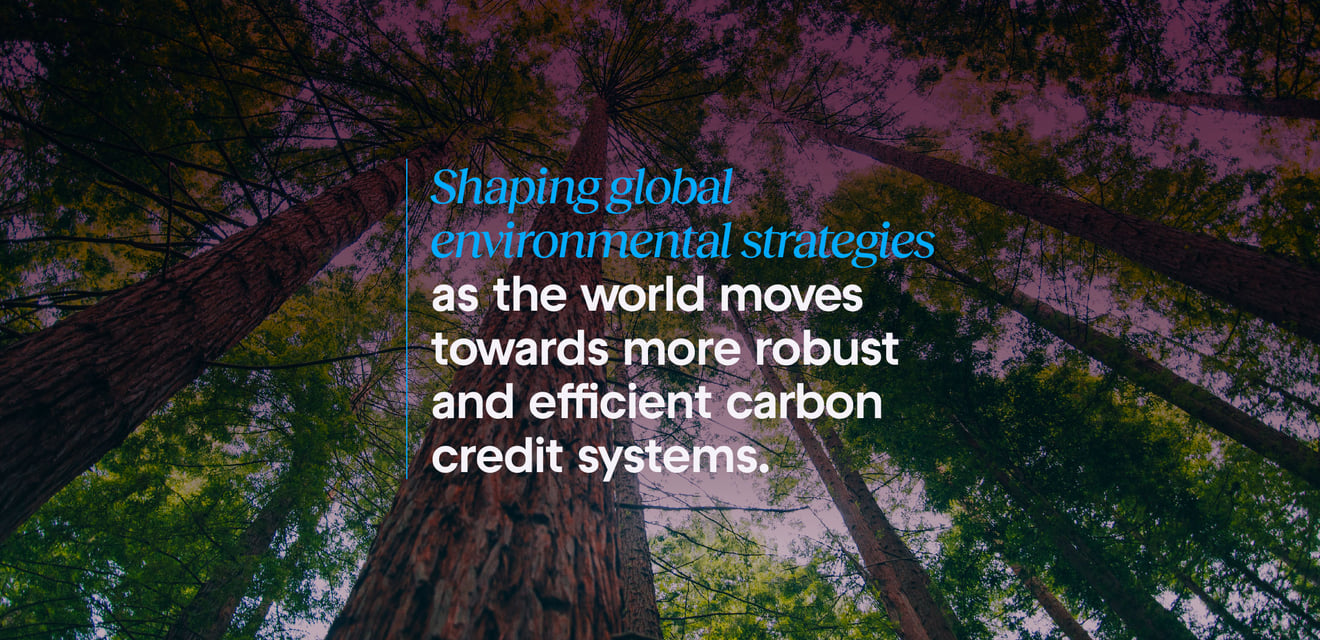Innovation, Integration, and Impact: Insights & Key Takeaways from the S&P Global Carbon Markets Conference

The recent S&P Global Carbon Markets Conference in Paris shed light on the challenges and opportunities within the global carbon credit market. A focal point of the discussions at this event revolved around the roles of developed and developing markets, the integration of compliance and voluntary markets, and the evolving landscape of carbon nationalism. This blog post delves into the key takeaways and insights gained from our attendance at the conference, highlighting the complexities and future directions of the carbon credit system.
Developed vs. developing markets: A dichotomy of challenges
A significant theme at the conference was the contrast between developed and developing markets in terms of their approach to decarbonization. Developed markets grapple with a lack of political will, whereas developing markets face the challenge of balancing growth with environmental responsibilities. Arnaud Lemeteyer, a carbon and renewable energy expert here at ACT and a participant at the S&P Global Carbon Market conference in Paris, aptly stated, "In navigating this market, it's crucial to understand not just the economic implications, but also the environmental integrity and social impacts of carbon credits." This dichotomy underscores the need for a nuanced understanding of global carbon credit strategies, recognizing the unique circumstances of different countries.
Voluntary carbon markets: The path to standardization
As the voluntary carbon markets (VCM) evolve, so do guidelines and initiatives that aim to bolster the market's credibility and enhance clarity and transparency for market participants, and address issues of integrity, potential reversals, and validation. Thus, the importance of regulation in voluntary markets was a topic of emphasis, focusing on legal clarifications, data transparency, governance, and frameworks to mitigate market abuse and greenwashing. The Integrity Council for Voluntary Carbon Markets (ICVCM) was discussed as a solution for standardization and scalability. (For a practical guide to recent developments in the ICVCM, read our latest blog).
Carbon nationalism and international collaboration
Carbon nationalism, a term used to describe the preference for retaining carbon credits within national borders, was another focal point. The conference highlighted the need for countries with strong environmental targets to invest profits back into the market, thereby fostering growth and integrity. Victor Desmedt, a Verified Emissions Reduction (VER) Sourcer at ACT, reflected on his experiences at the conference: "Our focus on maintaining integrity and credibility, aligning with the principles of Article 6 and the objectives of CORSIA (Carbon Offsetting and Reduction Scheme for International Aviation), reflects our shared commitment." International collaboration, as seen in mechanisms like Internationally Transferred Mitigation Outcomes (ITMO; Article 6.2), was emphasized as crucial for maintaining integrity and encouraging authorization and transparency in carbon trading.
The future of carbon markets: Innovation and integration
Discussions at the conference also highlighted the importance of innovation and integration within the carbon market, as there is a growing need for improved methodologies, liquidity, and professionalization in the market. The Carbon Border Adjustment Mechanism (CBAM) was cited as a significant development, influencing how countries manage carbon emissions from imports and incentivizing global climate policy alignment. Arnaud echoed this sentiment, saying, "Investing in carbon credits is no longer just a compliance exercise; it's a strategic move towards a more sustainable and responsible business model."
The conference also underscored what was viewed by many attendees as the inevitable convergence of compliance and voluntary markets, as many countries are making their own systems and some have shared features. Compliance markets, driven by government action and carbon pricing mechanisms, are seen as the future of effective carbon credit systems, and while the voluntary markets are helping build the liquidity needed, an enforceable regulatory framework is necessary to see real action and hit the climate targets set by the Paris Agreement.
There was an acknowledgement about the need for greater alignment in standards and methodologies, particularly through initiatives like CORSIA and the EU ETS (European Union Emissions Trading Scheme).
This 3 day event provided a comprehensive overview of the current state and future trajectory of carbon credit markets. Victor encapsulated the essence of the discussions, stating, "The transition to Net Zero will be accelerated and driven by collective environmental responsibility." The insights from this conference will undoubtedly play a crucial role in shaping global environmental strategies as the world moves towards more robust and efficient carbon credit systems.
Partner with ACT for expert carbon markets guidance
If your business is interested in understanding more about high-quality carbon credits and how they can enable you to contribute to beyond value chain mitigation and support meaningful sustainable impact, get in touch with us today at info@actcommodities.com.
Our global team of market experts diligently tracks guidance changes made by all the leading frameworks to ensure the carbon projects you're investing in or the carbon credits you’re sourcing will support your goals. We have the global network, knowledge, and experience to help you navigate complex markets and can create and execute a procurement strategy tailored to achieve your unique sustainability goals on a local level.